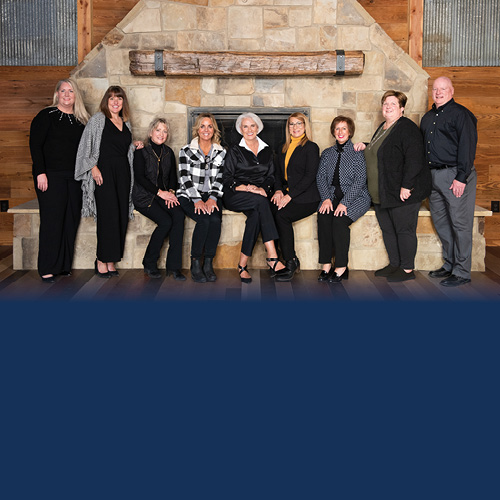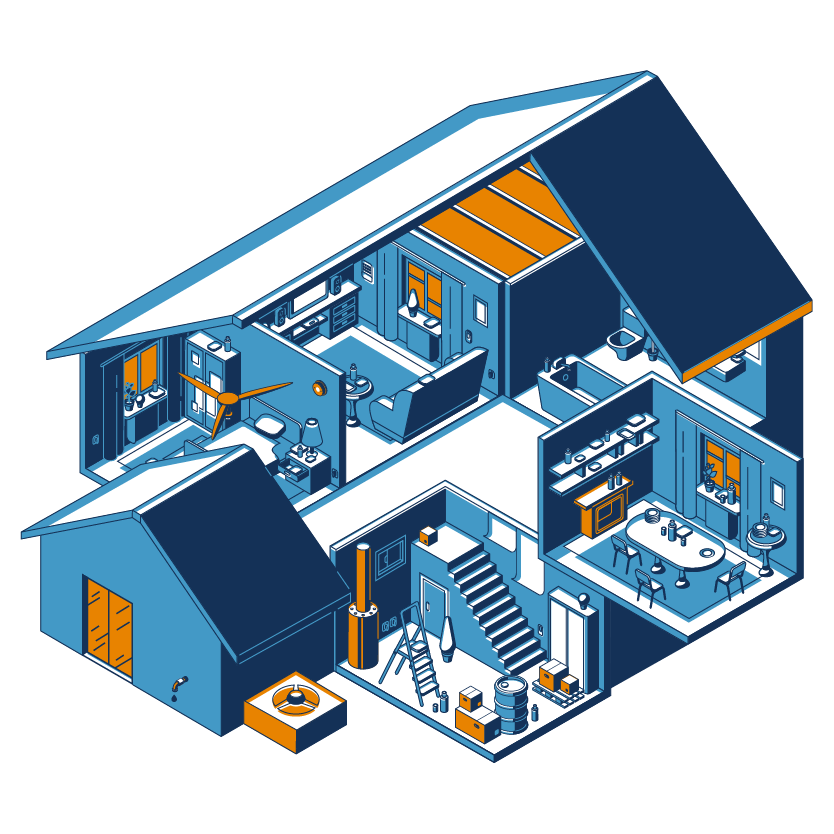Buying a home is a huge step! This big moment is filled with lots of little decisions too. One of the biggest decisions is determining what type of mortgage you want to use to finance your home. There are two primary options: a fixed-rate mortgage and an adjustable rate mortgage (ARM). Let’s walk through the basics of each to get a better understanding of your options in the home buying process.
Here is quick overview of the differences in a fixed rate mortgage vs. adjustable rate mortgage:
Fixed Rate Mortgage
- The interest rate remains the same over the term of the loan.
- A fixed rate mortgage is a great choice for people who plan to stay in a home with the same mortgage for a long time.
- The Home Buying Institute recommends a fixed rate mortgage for most first-time buyers.
Adjustable Rate Mortgage
- For the first few years of the loan, most ARMs have a fixed rate. After this time, the rate begins adjusting.
- During the initial fixed rate period, the interest rate is usually lower than a comparable fixed rate mortgage.
- Over the life of the loan, the interest rate will change at pre-determined intervals. However, there are interest rate caps that limit the amount the rate can change for each adjustment. ARMs also have an index and a margin that contribute to determining the new rate and payment.
- ARMs are great when a homeowner only plans to stay in their home for a few years.
Fixed Rate
A fixed rate loan is great to ensure stability in your mortgage payments. A fixed rate loan is also a great choice to help set a consistent budget to meet your long-term financial goals. These loans also present the option to refinance down the road if need be.
Adjustable Rate
Adjustable rate mortgages are more complex than a fixed rate mortgage loan. The first thing most people notice when they are looking at mortgage loan options is the low rates and payments ARMs offer during the initial loan period. However, this rate is only in effect for a certain length of time before your mortgage payments are subject to fluctuation depending upon the terms of the loan.
ARMs are commonly listed as 3/1, 5/1, and 7/1. The first number dictates the number of years your interest rate will be fixed. The second number indicates how frequently your interest rate will adjust annually, after the initial fixed period. There are also caps that limit how much the interest rate can increase or decrease. For example, a common adjustable rate mortgage is a 5/1 ARM with 2/6 caps. This means the initial rate is fixed for the first five years. After this period of time, the interest rate and payment can change every year afterward. With the loan in our example, the largest fluctuation in any year after the initial fixed period is limited to 2%. The total maximum increase during the life of the loan is capped at 6%. 6% might not seem like a lot, but if you start your loan with a 3.5% interest rate, by the time you add on the potential 6% increase, you could be looking at a 9.5% interest rate. This can be the tricky part about ARMs. You need to be sure you can afford your home mortgage loan even if you were to reach the maximum increase on the interest rate.
ARMs also include an index and margin help determine the amount of each rate adjustment. The index is an economic indicator used to calculate interest rate adjustments. The margin is a predetermined amount that is added to the index. These two pieces together determine the amount the interest rate will actually be adjusted.
Homebuyers have many options when it comes to choosing how to finance their new home. Deciding what mortgage loan you want for your financing can be a huge choice that impacts your long-term financial well-being. Make sure you’re making the right decision for your unique situation!








 Equal Housing Lender. SBA Preferred Lender. NMLS #440379
Equal Housing Lender. SBA Preferred Lender. NMLS #440379